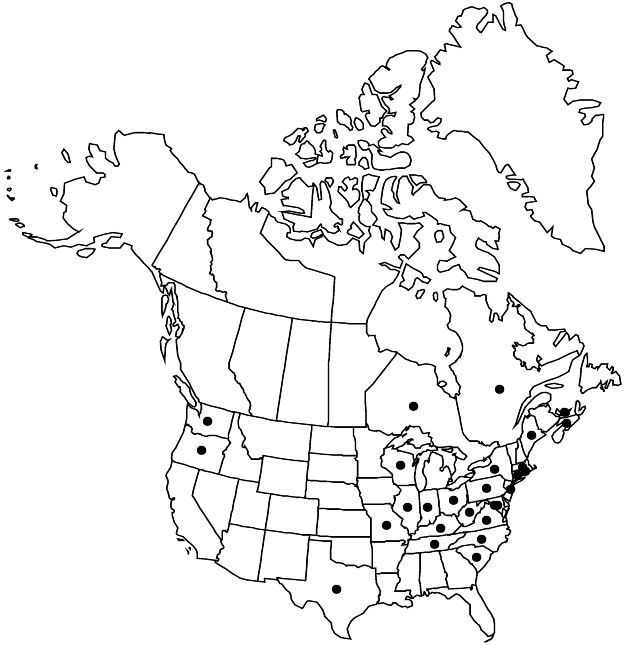Rosa rubiginosa var. nemoralis
in P. J. Redouté, Roses 2: 23. 1821.
Prickles infrastipular and internodal, lengths ± uniform, aciculi and setae absent on flowering branches. Leaves: terminal blades mostly oval, 12–20 × 8–14 mm, apex usually obtuse, abaxial surfaces seldom densely glandular. Flowers 2–3.5 cm diam.; sepals deciduous before or as hips mature, styles usually glabrous, stylar orifice 1/5–1/6 diam. of rims 2.5–4 mm diam. Hips 10–12 × 7–9 mm. 2n = 35, 42.
Phenology: Flowering May–Aug.
Habitat: Thickets, clearings, roadsides
Elevation: 0–700 m
Distribution

Introduced; N.S., Ont., P.E.I., Que., Conn., D.C., Ill., Ind., Ky., Maine, Md., Mass., Mo., N.J., N.Y., N.C., Ohio, Oreg., Pa., R.I., S.C., Tenn., Tex., Va., Wash., W.Va., Wis., Europe, introduced also in Pacific Islands (New Zealand), Australia.
Discussion
Variety nemoralis is often found near var. rubiginosa with apparently little or no ecological distinctions between them. They differ in morphological characters by degrees of expression rather than complete distinctions. The rank of variety follows, for example, the recommendation of H. J. Scoggan (1978–1979).
Selected References
None.